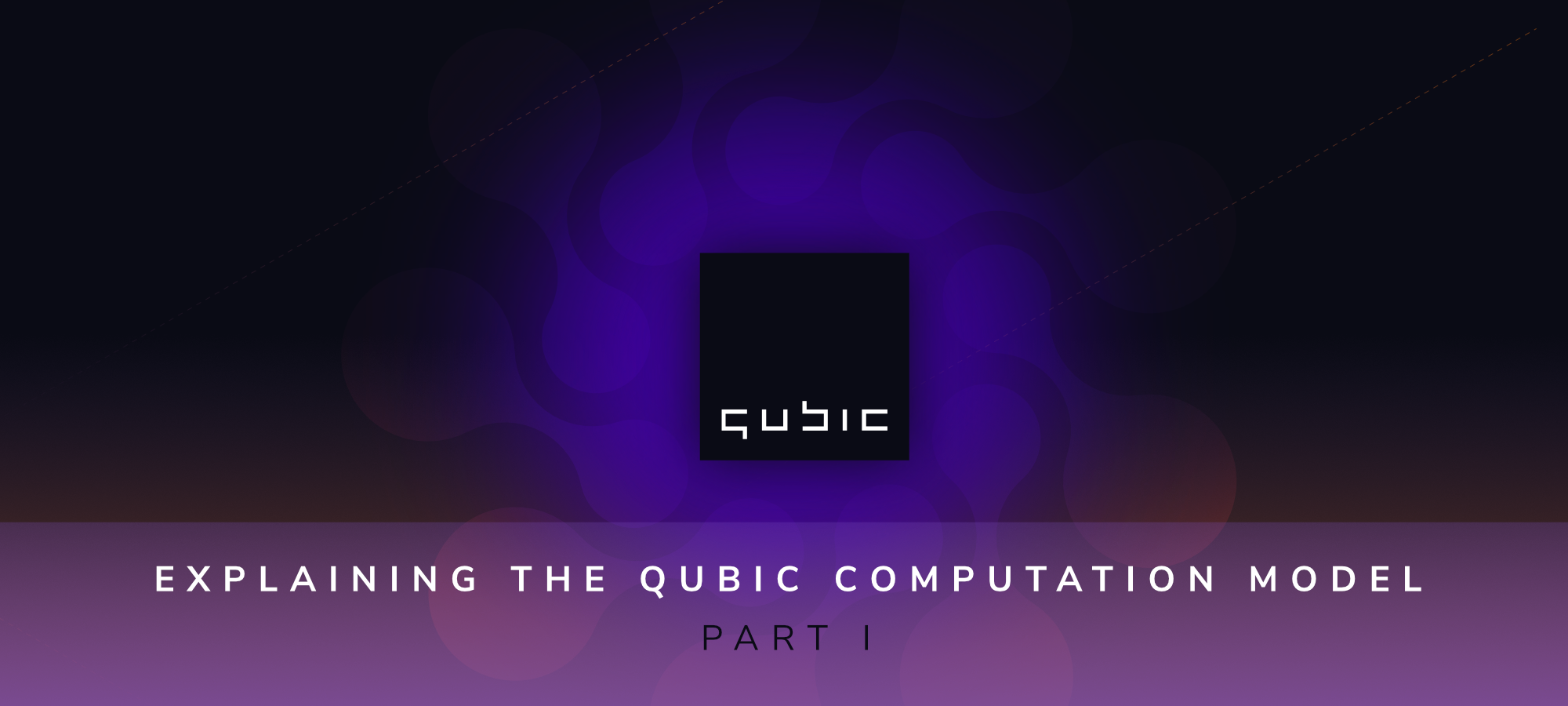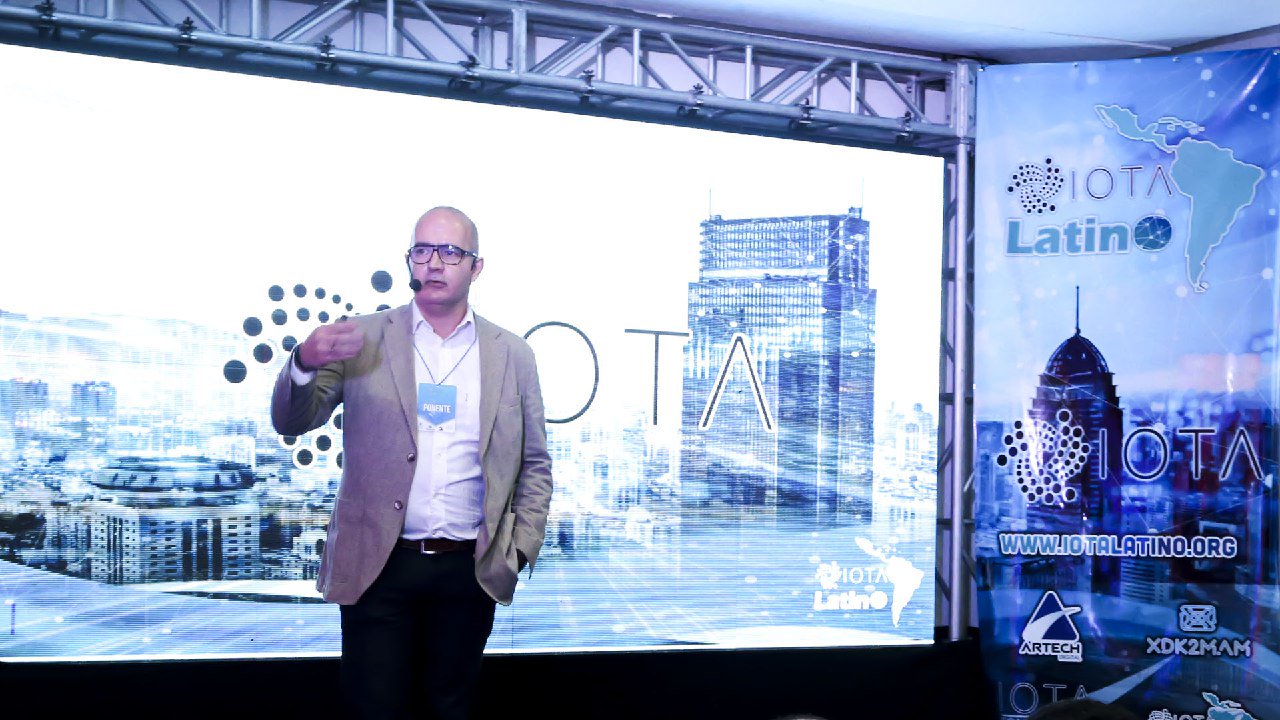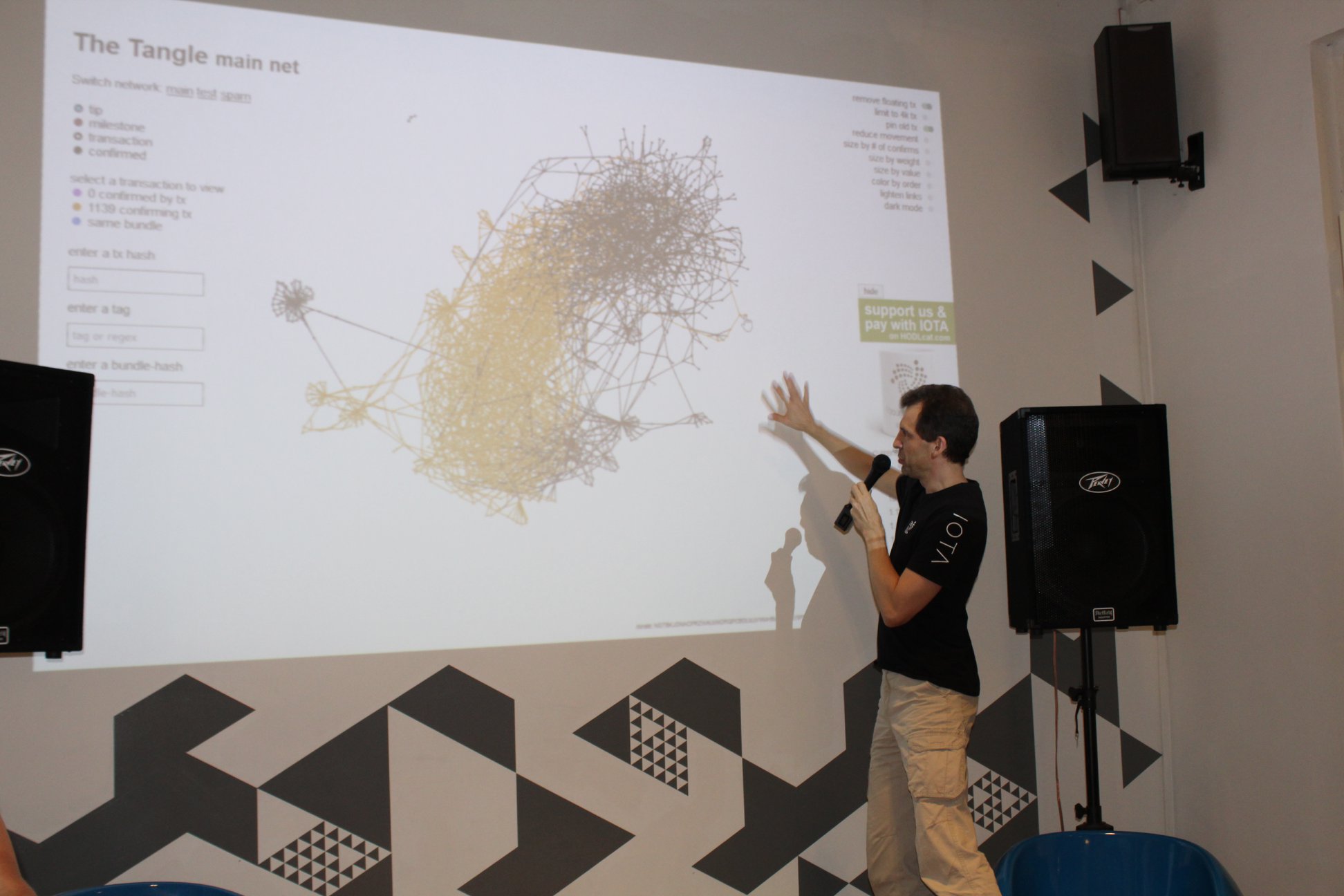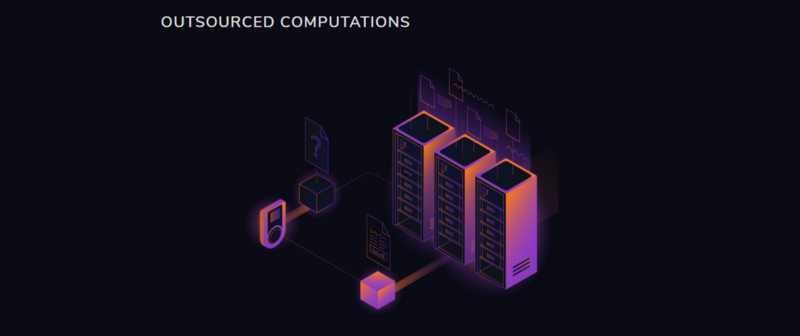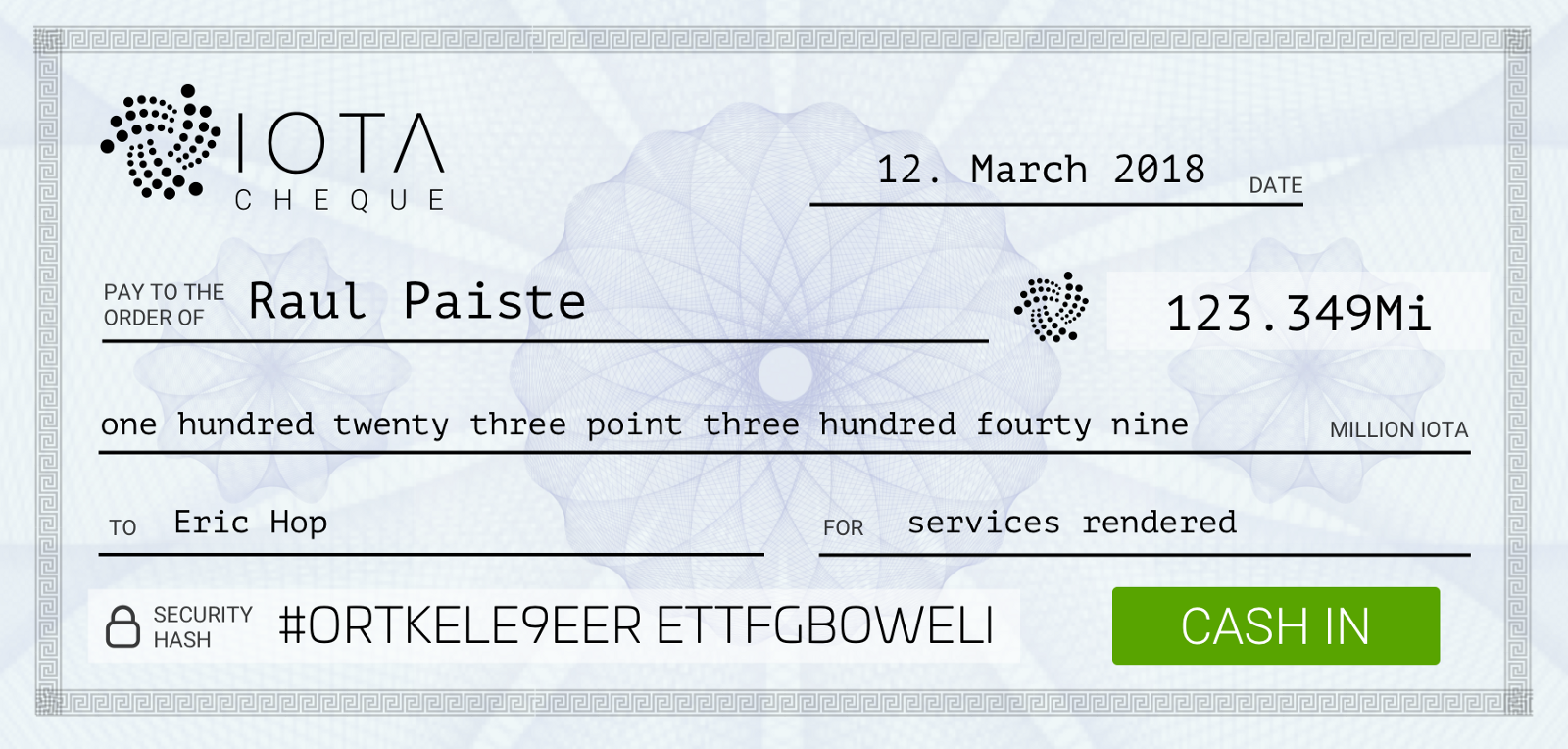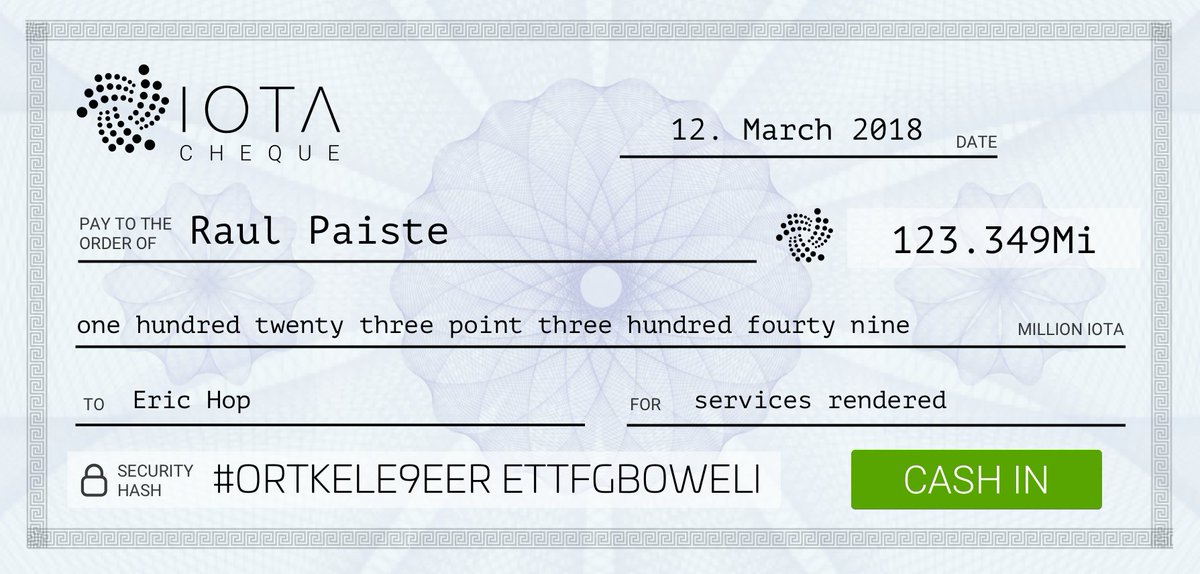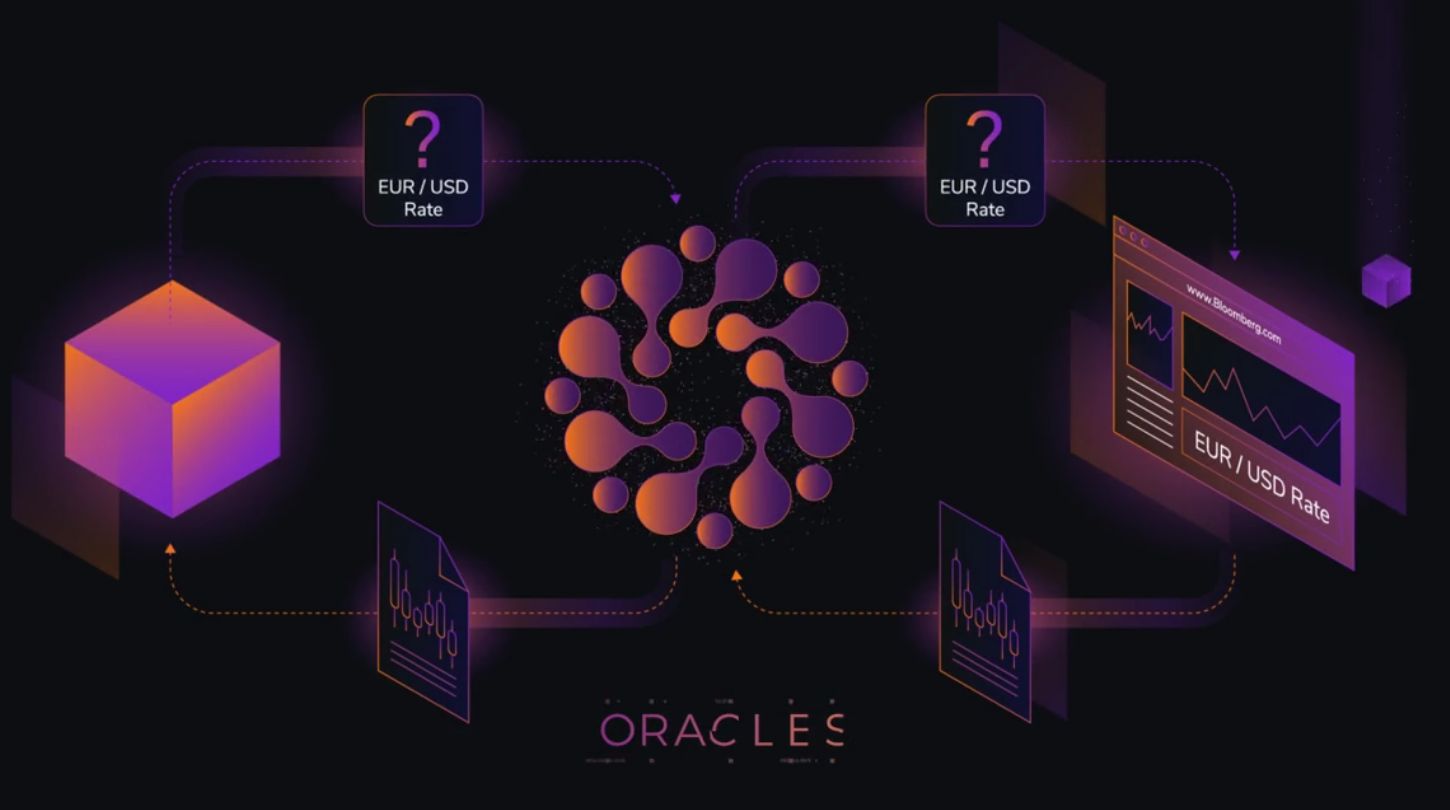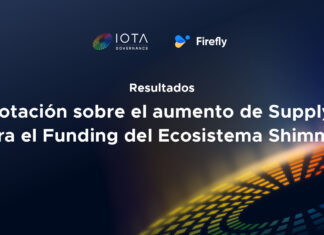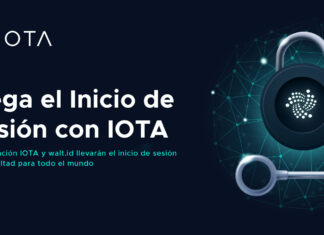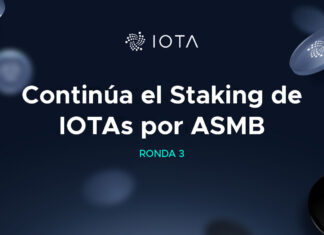
I met Eric Hop by June or July of 2017. I was doing my first steps in IOTA as it got listed in Bitfinex and I started seeking for the existent communities. It didn’t take a lot to understand that Eric was covering several fronts: administrating IOTA’s Facebook group, moderating Slack and Forums at Hello IOTA, writing posts on Medium to bring light on dark aspects or propose solutions to unfixed scenarios such as the donations one. Eric was also helping with a new wallet and had a lot of projects. Despite all this, this guy always had time to come back to me with help when I was lost in the Tangle.
From my years studying philosophy, I learned that really smart guys are usually humble enough to stop and find a way for others to understand what they see and envision. This is, in deed, Eric’s case. Thank you for all the time spent guiding us all through this path.
Daniel De Michele (Carpincho Dem)
Head of contents, IOTA Hispano
IOTA Evangelist Network member & Ecosystem Developer
Tell us a bit about your background and approach to the cryptographic/DLT world.
I started programming in 1979 when I first bumped into the university computer. I have been programming day-in day-out ever since. It’s one of those hobby-turned-into-work things. I feel like I haven’t worked a day in my life. I just get to hobby all day and get paid to do it.
My original background is in electronics, so most projects were highly technical. In addition I continued to educate myself and stayed in the forefront of what happened in computers for most of the time. In 2013 I started getting involved in bitcoin for real, and in 2014 I got my first crypto-currency related job working on Open Transactions for a Swiss company. I kept following what was going on in crypto while doing mobile development after that. In late May 2017 a friend pointed me to IOTA and I was blown away by how far ahead the ideas were. That’s when I started getting involved, learning as much as I could through helping others. Which ultimately resulted in my dream job at IF.
You are one of the IOTA Facebook group admins, which has more than 40k members. How did that happen?!
Timing, I guess. I became a member of the group when there were about 50 or so members. Because I had learned so much along the way I was constantly answering questions. Then at some point Kevin, the guy that started the group, asked me to take over because he did not have the time any more and it started growing fast, which I agreed to do. This allowed me to impart my particular vision of what a crypto group should be like. I had come to hate the moon/lambo groups which had almost nothing of substance. So I directed the group towards respectful behavior and informational content.
With the help of my good friend Andre and a number of hand-picked moderators we managed to keep the group running smoothly. A small experiment of allowing speculation-type postings turned the group chaotic overnight. So I reinstalled the no-speculation rule and we enforced it strictly. And again, overnight it became a friendly group again. In my opinion we have one of the best crypto groups out there, and it’s mostly because of our awesome group of moderators that run a tight ship.
After lots of work helping the community and developing solutions, you got to be an IF member. Did you think this was a possibility? How was the induction process?
I quickly realized I would love to work for IF. So I started hinting every now and then that I would be interested. Haha. Then, when the first hints towards Q started happening in November 2017, I got intrigued and dove into that subject, finding what I could find online. When IOTA moved from Slack to Discord I became even more visible to the community because I was constantly answering questions in #tanglemath, which is arguably where the tough questions are asked. Then I started writing a series of articles with solutions to long-standing problems, which gave me even more exposure. And of course a lot of contact with IF members because of me being a moderator on Slack and Discord. At some point I voice my intent to work for IF to Ralf and that turned into an invite to join. Imagine my surprise when they offered me to become product owner for the Q project. That was the easiest “hell yes” ever. I never doubted that I would end up at IF, but heading the crown jewel was definitely not something I expected. Hoping to be involved in Q, yes, but this surpassed my wildest dreams. It shows what you can achieve by just following your passion and focus on what you love doing.
You did not only get to be a member of the IF, but got to be Qubic’s project manager. How does it feel to be working in such cutting edge technology? Would you mind walking us through your typical day working for the IF?
This is by far the biggest challenge I have ever accepted. The scope of the project is huge. And a lot of the parts are still being created. The overall idea is there, but when you start thinking about the details all kinds of corner cases show up that need a solution. Luckily we have Come-from-Beyond as the mastermind behind the scenes constantly advising us.
In all my years of programming I never really looked up to anyone. I knew I could measure myself with the best in the field easily. But this guy is on a whole different level. He pretty much has an answer to everything. He’s like a chess player that has thought 15 moves ahead while you’re trying to figure out 2 moves ahead.
So our typical day is us bumping into a corner case, and then having a chat with CfB about this to come to deeper understanding. Which can be a challenge in itself because his communication style is very terse. Then we go out and inplement/experiment with that. For me personally of course the last month was almost completely dedicated to writing the website content for Qubic. So I have not been able to execute as many of my responsibilities as product owner as I wanted. Right now we’re finally getting to that part and the next thing on my radar is defining a solid road map.
Qubic’s latest released details kind of shifted IOTA from the center of the IF project as protocol for the IoT to a tool needed by Qubic to be possible. What’s your opinion on this?
Yes, it may sound silly, but IOTA was more like a spin-off project to make Qubic possible. CfB plays a long-term game. He has a vision that goes well beyond the next few years. He simply starts solving problems and then passes on the info to the people implementing his visions. And then he’s off to the next step he thinks is necessary. So even though we havent exactly solved everything with Qubic yet he is already thinking about the scalability issues and solving those. From what I have seen there are no real show-stoppers. All we need is enough time to figure it out and implement a solid core. Especially with IOTA in the top 10 currencies we cannot risk people’s money, so we need to move carefully step by step while we modify the running system. IOTA still is the core protocol, and a number of developments focus on making IOTA more scalable and reliable. Qubic will simply profit from that. It needs the messaging and fee-less payment system that IOTA provides. On the other hand, Qubic will strengthen the IOTA network by incentivizing people to run nodes and by increasing message traffic. Where things will go exactly no one knows. We provide the tools and then the community starts running with them and comes up with awesome solutions. I think there is some killer app out there that no one has even thought up yet.
Other projects such as EOS or TRON (list here is huge) are working on improving the smart contracts technology. In which way IOTA’s solution could be different/better?
To be quite honest, my interest in other tokens is very limited nowadays. I have read at least a hundred white papers in the past but I usually skim very quickly and try to find the important figures: transaction size, block size, and block time. That will tell me everything I need to know about the scalability. Essentially in my opinion any classic block chain based token has a number of serious problems, and trying to fix them is hard because the underlying model is flawed. The key problems are mining and fees, in combination with block size. No matter how you try to scale (lightning network for example), with any no-trivial usage you will always end up with a situation where the blocks are full, and people will increase fees to jump the queue that has formed. In addition mining itself has become an arms race resulting in mining power concentrated in a very limited set of hands, so decentralization is as much something that does not exist as some people talking about the Coordinator try to make you believe it is in IOTA. Worse, even, because there is a *single* manufacturer of ASIC miners. Bitmain essentially controls that market and plays very dirty with anyone trying to enter their turf.
Also, the 20% energy increase each month that mining takes is not sustainable in the long run. Crypto-mining by itself has negated all energy savings the world has achieved in the last decades.
As for smart contracts, I think our approach of having a limited set of actors executing them as opposed to all actors in the network makes much more sense. Most people don’t care about smart contracts at the moment. They want to transfer money. And the few that do care don’t need the whole world to run their contracts.
Volatility is a big problem in the crypto ecosystem. For a token such as IOTA to be used for payments this must be addressed. Do you have any ideas about how this could be dealed with?
Growth. Look at Bitcoin, how the volatility has become a lot less over time. And this is a coin that is hardly used in the real world any more other than as a value store. It lost most of its initial USPs. Yet automated trading has created an equilibrium. Higher adoption will make that equilibrium even more stable. That’s what will happen with IOTA once IoT solutions start popping up running on the IOTA protocol. I think we will also see the walls between fiat and crypto coming down once crypto gains more acceptance. We will at some point see a shift towards more usage of crypto and less usage of fiat. It’s inevitable. The cat is out of the bag. And that will be a huge stabilizing factor. Especially once governments can no longer print money at will under the pretence of influencing the economy. That has never worked. All they do is finance their power and war games. And we’re the ones paying for it. My hope is to take some of that power back from the idiots running the asylum.
We know ternary processors are under development with no ETA’s yet by more than one manufacturer. What’s your take on trinary computing and, do you think this is to where the future is headed?
We are literally anticipating the future. It’s no secret that Jinn will be a trinary processor and is a one reason for the trinary nature of IOTA. Not many people realize this, but the current binary systems are running against serious limitations already. Moore’s Law is coming to an end.
Trinary research has only just begun, but we already see a huge potential there for energy reduction. And this will be driven by IoT where designing and creating custom chips is almost the norm, so it won’t matter to change a part or all of it to a new architecture. This is not about taking over the existing market of binary systems, although these will be able to run our software as well. I expect to see trinary co-processors show up on binary chips to offload certain tasks in the future once they’ve proven themselves in IoT. Chip companies are always looking for an edge, and that edge could be offering a little area of their chips to trinary designs. And once trinary has seriously proven itself you will see an evolutionary shift towards it. Especially once it gets better understood.
How do you see the network growth on 2018? We know it needs more volume and a better CTPS rate to be used in production. What do you think is missing to get this growth?
I’ve already touched upon the scalability. CfB is working on that. The current Tangle is limited by the network band width and the fact that every transaction needs to be seen by every node. Economic clustering will change all that. There’s hardly any need for a node in the USA to process transactions in Asia and vice versa. You will see local economic clusters process much of the transactions in a certain economic area. Transactions that cross over between clusters will be something that occurs less, and we’re working on a solution for that to be achievable without the possibility of double-spending in different clusters. Again, this will need serious research and experimentation because we will have to modify the running system. So it will be small, controlled, organic steps towards that.
We also have people working on making the current IRI better. You can see the directions that common thinking takes us on Discord. Like better tip selection algorithm for example, and self-snapshotting, all the way to removal of the Coordinator. But others are better situated to elaborate on those ideas than me. My focus is on Qubic right now.
What’s your opinion on the hype abuse and hodlers unrealistic expectations regarding products/features delivery dates and hunger for partnertships?
Crypto is mostly speculation driven. People want instant results. We’ve had two waves with unimaginable growth (late 2013 and late 2017), with drops afterwards and slow periods in between. Right now we’ve entered a slow period again, and a lot of people got in late December driven by FOMO. These people have seen their investments drop to 50% or less. And of course they want to return to at least break even sooner rather than later. So they try to influence the market any way they can.
Enter IOTA. A token so scary to them because of its disruptive nature that it could make their investments obsolete. Of course they lash out and try to FUD it to death. Well guess what, we will ignore them and continue building our protocols and alliances with corporates (who really don’t give a damn about a tweet, they look at the tech and the team instead). We will let the end results speak for itself. And all that market manipulation is not an area for us to focus on. Once adoption kicks in IOTA will rise in price purely by demand for the token. It’s a long game. I rode the crypto waves since before summer 2013, found out quickly that trying to trade was madness, so turned hodler. Rode through both huge waves with nice results without doing a thing and looking forward to ride the next wave, whether that will be this year or in a few years. I frankly don’t care, because I am in it for the tech and the fun. The money is only a nice bonus if it materializes, and I have nothing running on it that I cannot afford to lose. If it evaporates next month I will just shrug and continue with business as usual. Happiness is a decision. Money does not enter that decision for me. Passion for what I do is more important.
In times of 51% attacks, don’t you think that a Coo-like instance would be beneficial to other young projects? Why not descentralice the Coo logic amongst the nodes so as to keep it taking care of the network from a non centralized position?
I would not be surprised if something Coo-like survives as part of economic clustering.
Because in essence all these clusters are mini-Tangles that would all be suceptible to the same kinds of attacks as the main Tangle today. So it only makes sense to have a decentralized Coo-functionality in every node. Again, I am not involved in the project that aims to remove Coo, so others are better suited to answer those questions. I have noticed that people take my words about everything as the absolute truth, and I definitely at some points only extrapolate or work with incomplete data. So anything I say may turn out to be BS in the end, even when I did think about it extensively.
How do you see the future in 5 years in terms of IoT devices adoption?
Probably nothing like what we think it will look like today. Economic forces will decide on what works and what not. It will be organic growth. Some of the current plans will turn out to be a dud. Other plans haven’t been devised yet. Some killer application could pop up that speeds up the time table, or we could bump into a road block that delays the time table. It’s very hard to tell the future. All we can do is work towards our vision and not be too myopic to think that we have *the* solution. We need to stay open enough to alter course when the situation warrants it. And again, there are visionaries out there that can do a better job at this crystal-ball gazing than me. I’m very much a person that lives in the now and is not really invested in the outcome other than that I like to build awesome products and have fun doing what I do. So far that way of living has brought me much satisfaction, and I seem to have made a positive impact on the world. If only more people would try to leave this world a better place than they found it we could have created a paradise beyond measure for everyone by now.
What would you say to people trying to get to be a part of the IOTA Foundation?
Go for it! We will be growing to at least 100 people this year alone. Our plans are ambitious and we need highly skilled and motivated people to help realize those plans. Once the Qubic road map is in place I will be looking for a number of those to add to the Qubic team. Check the iota site to see what job openings are available. But you can also get involved in the community. There are quite a lot of people out there that are not IF but make a very positive impact on the community and help spread the word. You don’t even need to be a techie. All you need is the desire to help create a better world for everyone.




